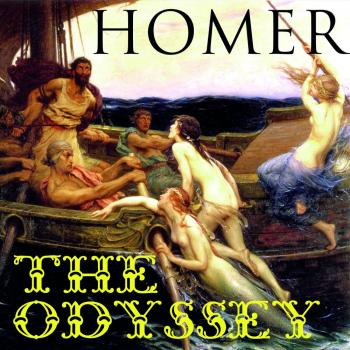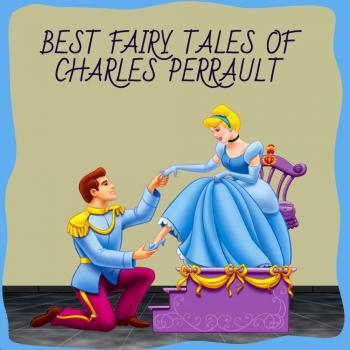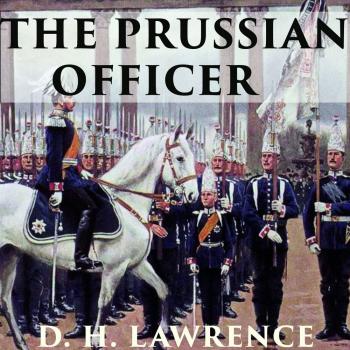Мультимедийное издательство Стрельбицкого
Все книги издательства Мультимедийное издательство СтрельбицкогоBartleby, the Scrivener
"Bartleby, the Scrivener: A Story of Wall Street" is a short story by the American writer Herman Melville, first serialized anonymously in two parts in the November and December 1853 issues of Putnam's Magazine, and reprinted with minor textual alterations in his The Piazza Tales in 1856. In the story, a Wall Street lawyer hires a new clerk who, after an initial bout of hard work, refuses to make copies or do any other task required of him, with the words, «I would prefer not to». The narrator is an elderly, unnamed Manhattan lawyer with a comfortable business in legal documents. He already employs two scriveners, Nippers and Turkey, to copy legal documents by hand, but an increase in business leads him to advertise for a third. He hires the forlorn-looking Bartleby in the hope that his calmness will soothe the irascible temperaments of the other two… Among the most significant works Herman Melville - "Bartleby: La formula della creazione" (1993) of Giorgio Agamben and «Bartleby, ou la formule by Gilles Deleuze» are two important philosophical essays reconsidering many of Melville's ideas, "A Peep at Polynesian Life", «А Narrative of Adventures in the South Seas», «Mardi: And a Voyage Thither», «Redburn: His First Voyage», «White-Jacket; or, The World in a Man-of-War», «Moby-Dick; or, The Whale», «Pierre: or, The Ambiguities», «Isle of the Cross», «Bartleby, the Scrivener», The Encantadas, or Enchanted Isles", «Benito Cereno», «Israel Potter: His Fifty Years of Exile»
The Odyssey
The Odyssey is one of two major ancient Greek epic poems attributed to Homer. It is, in part, a sequel to the Iliad, the other Homeric epic. The Odyssey is fundamental to the modern Western canon; it is the second-oldest extant work of Western literature, while the Iliad is the oldest. Scholars believe the Odyssey was composed near the end of the 8th century BC, somewhere in Ionia, the Greek coastal region of Anatolia. The poem mainly focuses on the Greek hero Odysseus (known as Ulysses in Roman myths), king of Ithaca, and his journey home after the fall of Troy. It takes Odysseus ten years to reach Ithaca after the ten-year Trojan War. In his absence, it is assumed Odysseus has died, and his wife Penelope and son Telemachus must deal with a group of unruly suitors, the Mnesteres or Proci, who compete for Penelope's hand in marriage. The Odyssey continues to be read in the Homeric Greek and translated into modern languages around the world. Many scholars believe the original poem was composed in an oral tradition by an aoidos and was more likely intended to be heard than read. The details of the ancient oral performance and the story's conversion to a written work inspire continual debate among scholars.
Best Fairy Tales
Charles Perrault (12 January 1628 – 16 May 1703) was a French author and member of the Académie Française. He laid the foundations for a new literary genre, the fairy tale, with his works derived from earlier folk tales, published in his Histoires ou contes du temps passé. The best known of his tales include Le Petit Chaperon Rouge (Little Red Riding Hood), Cendrillon (Cinderella), Le Chat Botté (Puss in Boots), La Belle au bois Dormant (The Sleeping Beauty) and Barbe Bleue (Bluebeard). Some of Perrault's versions of old stories influenced the German versions published by the Brothers Grimm more than 100 years later. The stories continue to be printed and have been adapted to opera, ballet (such as Tchaikovsky's The Sleeping Beauty), theatre, and film. Perrault was an influential figure in the 17th-century French literary scene, and was the leader of the Modern faction during the Quarrel of the Ancients and the Moderns.
Classic Christmas Collection
Classic Christmas Collection is an anthology of what children and parents have heard and read over the ages. In our audiobook comes a selection of the best fairytales about Сhristmas, stories about adventures and everything that makes a our world world magical. Our collection includes the following Christmas stories: Charles Dickens – A Christmas Carol, Gilbert Keith Chesterton – A Christmas Carol, Lucy Maud Montgomery – A Christmas Inspiration, A Christmas Mistake, Christmas at Red Butte, Lyman Frank Baum – A Kidnapped Santa Claus, Mark Twain – A Letter from Santa Claus, Louisa May Alcott – A Merry Christmas, Leo Tolstoy – A Russian Christmas Party, Henry Wadsworth Longfellow – Christmas Bells, Nikolai Gogol – Christmas Eve, William Dean Howells – Christmas Everyday, Joseph Rudyard Kipling – Christmas in India, Lyman Frank Baum – Little Bun Rabbit, Elizabeth Harrison – Little Gretchen and the Wooden Shoe, John Milton – On the Morning of Christ’s Nativity, Charles Dickens – The Chimes, Hans Christian Andersen – The Fir Tree, Selma Lagerlöf – The Holy Night, Hans Christian Andersen – The Little Match Girl, Clement Moore – The Night Before Christmas, Henry van Dyke – The Other Wise Man, William Dean Howells – The Pony Engine and the Pacific Express, Beatrix Potter – The Tailor of Gloucester, Henry Wadsworth Longfellow – The Three Kings, Anton Chehov – Vanka.
Первая помощь пострадавшим при проведении поисково-спасательных работ в горах
Работа посвящена оказанию первой помощи пострадавшим при чрезвычайных ситуациях и несчастных случаев, происходящих в горах. Даётся характеристика гор Узбекистана, наиболее часто наблюдаемых чрезвычайных ситуации, происходящие в горах, оказанию первой помощи пострадавшим при различных ситуациях. Работа будет полезна спасательным службам МЧС, инструкторам, альпинистам, геологам. Автор – Гафуров Немат Нозирович, кандидат медицинских наук. Рецензент – доцент кафедры травматологии, ортопедии и нейрохирургии ТашПМИ, доктор мед. наук Н.Н. Золотова.
Спящая красавица
Старинная сказка о прекрасной принцессе, которая уснула на сто лет, но благодаря прекрасному принцу, чары злой колдуньи развеялись и принцесса воскресла к новой жизни. Сказка положена на стихи и изложена языком трубадуров для ценителей и почитателей творчества Шарля Перро.
The Other Wise Man
The Other Wise Man is a short novel or long short story by Henry van Dyke. It was initially published in 1895 and has been reprinted many times since then. The story is an addition and expansion of the account of the Biblical Magi, recounted in the Gospel of Matthew in the New Testament. It tells about a «„fourth“» wise man (accepting the tradition that the Magi numbered three), a priest of the Magi named Artaban, one of the Medes from Persia. Like the other Magi, he sees signs in the heavens proclaiming that a King had been born among the Jews. Like them, he sets out to see the newborn ruler, carrying treasures to give as gifts to the child – a sapphire, a ruby, and a «„pearl of great price“». However, he stops along the way to help a dying man, which makes him late to meet with the caravan of the other three wise men. Because he missed the caravan, and he can't cross the desert with only a horse, he is forced to sell one of his treasures in order to buy the camels and supplies necessary for the trip. He then commences his journey but arrives in Bethlehem too late to see the child, whose parents have fled to Egypt. He saves the life of a child at the price of another of his treasures… The Christmas stories of the famous authors: Gilbert Keith Chesterton – A Christmas Carol, Lucy Maud Montgomery – A Christmas Inspiration, A Christmas Mistake, Christmas at Red Butte, Lyman Frank Baum -A Kidnapped Santa Claus, Mark Twain – A Letter from Santa Claus, Louisa May Alcott – A Merry Christmas, Leo Tolstoy – A Russian Christmas Party, Henry Wadsworth Longfellow – Christmas Bells, Nikolai Gogol – Christmas Eve, William Dean Howells – Christmas Everyday, Joseph Rudyard Kipling – Christmas in India, Lyman Frank Baum – Little Bun Rabbit, Elizabeth Harrison – Little Gretchen and the Wooden Shoe, John Milton – On the Morning of Christ’s Nativity, Charles Dickens – The Chimes, Nathaniel Hawthorne -The Christmas Banquet, Hans Christian Andersen – The Fir Tree, Selma Lagerlöf – The Holy Night, Hans Christian Andersen – The Little Match Girl, Clement Moore – The Night Before Christmas, Henry van Dyke – The Other Wise Man, William Dean Howells – The Pony Engine and the Pacific Express, Beatrix Potter – The Tailor of Gloucester, Henry Wadsworth Longfellow – The Three Kings, Anton Chehov – Vanka.
The Turn Of The Screw
The Turn of the Screw, originally published in 1898, is a novella written by Henry James. The story, a part of Gothic and ghost story genres, first appeared in serial format in Collier's Weekly magazine (27 January – 16 April 1898). In October 1898 it appeared in The Two Magics, a book published by Macmillan in New York City and Heinemann in London. Due to its original content, The Turn of the Screw became a favorite text of academics who subscribe to New Criticism. The novella has had differing interpretations, often mutually exclusive. Many critics have tried to determine the exact nature of the evil hinted at by the story. However, others have argued that the brilliance of the novella results from its ability to create an intimate sense of confusion and suspense within the reader.
Daisy Miller
Daisy Miller is a novella by Henry James that first appeared in Cornhill Magazine in June–July 1878, and in book form the following year. It portrays the courtship of the beautiful American girl Daisy Miller by Winterbourne, a sophisticated compatriot of hers. His pursuit of her is hampered by her own flirtatiousness, which is frowned upon by the other expatriates when they meet in Switzerland and Italy. Annie «„Daisy“» Miller and Frederick Winterbourne first meet in Vevey, Switzerland, in a garden of the grand hotel, where Winterbourne is allegedly vacationing from his studies (an attachment to an older lady is rumoured). They are introduced by Randolph Miller, Daisy's nine-year-old brother. Randolph considers their hometown of Schenectady, New York, to be absolutely superior to all of Europe. Daisy, however, is absolutely delighted with the continent, especially the high society she wishes to enter.
The Prussian Officer
The first narrative in the collection is «The Prussian Officer», which tells of a Captain and his orderly. Having wasted his youth gambling, the captain has been left with only his military career, and though he has taken on mistresses throughout his life, he remains single. His young orderly is involved in a relationship with a young woman, and the captain, feeling sexual tension towards the young man, prevents the orderly from engaging in the relationship by taking up his evenings. These evenings lead to the captain abusing his orderly and leaving large, painful bruises on his thighs, making it hard for the orderly to walk. Whilst isolated in a forest during manoeuvres, the orderly takes out murderous revenge on the captain, but finds himself in a daze seemingly due both to the pain of the bruises and thirst. The orderly eventually collapses and dies in the hospital shortly thereafter. The corpses of the two men lay side by side…









